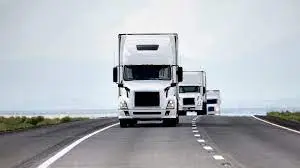Trucking, an indispensable part of the global economy, involves the movement of goods from one place to another. While the wheels keep turning, it’s crucial to acknowledge the risks associated with this dynamic industry. One of the fundamental aspects that every trucking company must consider is insurance. In this article, we’ll delve into the intricacies of trucking insurance Safeguarding Your Wheels and Deals, exploring its types, factors influencing rates, tips for choosing the right coverage, and much more.
Introduction
In the realm of trucking, insurance isn’t just a legal obligation; it’s a shield that protects businesses from potential financial storms. As the lifeline of commerce, trucks face diverse challenges on the road, making insurance a non-negotiable aspect of the industry.
Types of Trucking Insurance
Primary Liability Insurance
Primary liability insurance is the foundational coverage that every trucking company needs. It protects against bodily injury and property damage caused by the truck during business.
Physical Damage Coverage
This type of insurance safeguards the truck itself, covering damages caused by accidents, vandalism, or natural disasters.
Cargo Insurance
Cargo insurance protects the goods being transported. It ensures that the financial burden doesn’t fall solely on the trucking company in case of damage or loss of cargo.
Non-Trucking Liability Insurance
Often misunderstood, non-trucking liability insurance covers the driver when they are not on the job. It’s crucial for independent owner-operators.
Bobtail Insurance
This coverage kicks in when a truck is operated without a trailer. It’s essential for instances when the truck is moving without cargo.
Factors Influencing Trucking Insurance Rates
The cost of trucking insurance isn’t arbitrary; it’s influenced by several factors. A clean driving record, the type of cargo being transported, the distance covered, and the specifications of the vehicles all play pivotal roles in determining insurance rates.
How to Choose the Right Coverage
Selecting the right trucking insurance Safeguarding Your Wheels and Deals requires a nuanced approach. Understanding the unique needs of the business, complying with legal requirements, and considering additional coverage options are critical steps in this decision-making process.
Common Misconceptions About Trucking Insurance
The Assumption that General Auto Insurance Suffices
Contrary to popular belief, general auto insurance falls short when it comes to adequately covering the risks associated with trucking. Trucking insurance is tailored to the specific needs and challenges of the industry.
Ignoring the Importance of Cargo Insurance
Cargo insurance is often overlooked, with some assuming that primary liability insurance is sufficient. However, the financial repercussions of damaged or lost cargo can be severe.
Not Understanding the Difference Between Liability and Non-Trucking Liability Insurance
The distinction between liability and non-trucking liability insurance is crucial. Liability insurance covers accidents that occur during business, while non-trucking liability insurance provides coverage when the truck is not on the job.
Benefits of Comprehensive Trucking Insurance
Protection Against Financial Losses
Comprehensive trucking insurance acts as a financial safety net, ensuring that the company doesn’t face insurmountable losses in the event of an accident or unforeseen circumstance.
Ensuring Compliance with Legal Requirements
Apart from being a wise financial decision, having the right insurance is a legal requirement for trucking companies. Non-compliance can lead to severe consequences.
Safeguarding the Reputation of the Trucking Company
In an industry where reputation is paramount, having comprehensive insurance enhances the trust and confidence of clients and partners.
The Impact of Technology on Trucking Insurance
As technology continues to advance, its influence on trucking insurance becomes more pronounced. Telematics plays a crucial role in determining insurance premiums and providing real-time data on driver behavior and vehicle performance.
Conclusion
In conclusion, trucking insurance is not just a financial safeguard; it’s a strategic investment in the longevity and success of a trucking business. By understanding the types of insurance, and factors influencing rates, and adopting proactive measures, businesses can navigate the road ahead with confidence, knowing they are adequately protected

